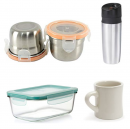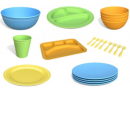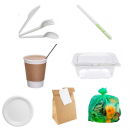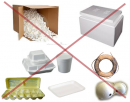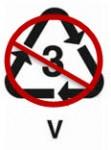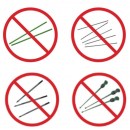Foodware
According to the 2019 Single-Use Foodware Plastics, Toxics and Litter Reduction Ordinance, the following single-use food and beverage accessories may be made available only upon request or in a self-service area: condiment packages and portion cups, cup lids and sleeves, cutlery, drink stirrers and plugs, and napkins. Event producers who provide prepared beverages to more than 100 attendees on City property are required to promote or provide reusable beverage containers to at least 10% of attendees.
Info on this product category: Foodware
Why Go Green
Foodware on this webpage does not contain polystyrene (Styrofoam) or bisphenol-A (BPA). Polystyrene is not recyclable and its monomer, styrene, is a known carcinogen. BPA exposure in small amounts has been linked to cancer, asthma, obesity, attention deficit disorder, altered development of the brain and immune system, low birth weight and lowered sperm counts.
Center for Environmental Health tested compostable, single-use foodware listed above as "green" to ensure they have no toxic fluorinated chemicals (per- and poly-fluoroalkyl substances (PFAS)). PFAS:
- Are associated with cancer, high cholesterol and obesity.
- Have been found to migrate out of products and get into our air, dust, water and bodies.
Citywide contracted single-use foodware must not have PFAS or polyvinyl chloride (PVC). PVC usually has phthalates (some of which disrupt our hormones and probably causes cancer), and sometimes has lead (which can cause reproductive problems and nerve disorders), and when PVC is made or disposed, it releases cancer-causing dioxins.
Tips
In San Francisco, compost and recycle:
- Paper cups and ice cream containers go in blue recycling bins. Other paper foodware (e.g., plates, boxes, napkins) that touched food go in green compost bins.
- Plastic (e.g., bags, food wrap, containers) and metal go in blue recycling bins.
- Plastic that says "compostable" and "certified by the Biodegradable Products Institute" go in green compost bins.

